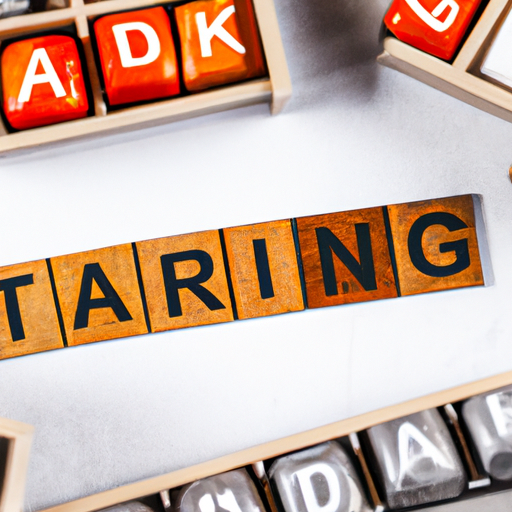Exploring The Vibrant World Of A Trading Marketplace
The trading marketplace is an exciting and dynamic environment where various financial instruments are bought and sold.
If you’re an aspiring trader or a seasoned professional, understanding the nuances of this ecosystem can significantly enhance your trading prowess.
In this article, we’ll dive deep into the fascinating world of the trading marketplace, exploring its components, strategies, and opportunities.
What Is A Trading Marketplace?
At its core, a trading marketplace is a platform where buyers and sellers come together to trade financial assets.
These assets can include stocks, currencies (forex), commodities, cryptocurrencies, and more.
Trading marketplaces serve as intermediaries that facilitate the exchange between parties with different needs and goals.
Imagine you are part of a bustling bazaar where traders shout their offers and deals.
That’s essentially how trading marketplaces work but in a more structured and regulated manner.
From individual investors to institutional players, everyone participates in these markets aiming to maximize their returns while managing risk.
Key Players In The Trading Marketplace
The trading marketplace is populated by several key players that contribute to its vibrancy and efficiency:
– Individual Traders: These are people like you and me who use their knowledge, skills, and resources to trade financial instruments for profit.
– Institutional Investors: These include mutual funds, pension funds, hedge funds, etc., Which trade large volumes of assets on behalf of clients.
– Market Makers: They provide liquidity by being ready to buy or sell at publicly quoted prices.
– Brokers: Entities like FBS Forex that act as intermediaries between traders and the market.
Understanding these participants is crucial because it helps you anticipate market movements based on their behaviors.
Types Of Trading Marketplaces
There are various types of trading marketplaces catering to different asset classes:
– Stock Exchanges: Platforms like NYSE or NASDAQ where company shares are traded.
– Forex Markets: This involves currency pairs trading on platforms provided by some of the top 10 forex brokers in the world. It’s a 24/7 market due to global time zones.
– Commodity Markets: Here commodities like gold, oil, etc., Are traded. Examples include the Chicago Mercantile Exchange (CME).
– Cryptocurrency Exchanges: Digital platforms where cryptocurrencies like Bitcoin are bought and sold.
Each of these marketplaces has unique characteristics requiring specific strategies for success.
The Role Of Technology In The Trading Marketplace
Technology has revolutionized how we trade:
– Automated Trading Systems: Automating trades based on preset criteria. This reduces emotional decision-making errors.
– High-Frequency Trading (HFT): Using algorithms to execute large orders at very high speeds. This isn’t for everyone but shows how tech can be leveraged for an edge.
– Mobile Apps And Platforms: Easy access via smartphones means you can monitor your forex account or stock portfolio anytime from anywhere.
These advancements have democratized access allowing even those with minimal resources to participate actively in trading markets globally.
Effective Strategies For Success In The Trading Marketplace
Success in any trading marketplace requires well-thought-out strategies:
1. Research And Analysis: Fundamental analysis (studying financial statements) combined with technical analysis (chart patterns) provides insights into asset performance trends.
2. Risk Management Tools: Stop-loss orders limit potential losses; diversifying investments spread risks across multiple assets reducing exposure if one fails miserably.
3. Stay Updated With News & Trends: Following economic indicators news releases ensures informed decisions aligning trades according not only past data but current events impacting future outcomes too!
By implementing these strategies effectively over time consistent profitability becomes achievable goal rather than distant dream!
Challenges In The Trading Marketplace
While opportunities abound it’s important not ignore inherent challenges such as:
1. Market volatility – sudden price swings lead significant gains losses within short periods requiring quick reflexes adaptability;
2. Regulatory changes – compliance laws vary countries affecting how trade done internationally often leading unexpected complications delays;
An awareness preparation addressing these issues head-on ensures smoother sailing amidst turbulent waters!
The Future Of The Trading Marketplace
As technology continues evolving so does landscape encompassing future developments likely include enhanced AI-driven decision-making tools greater cross-border collaboration seamless integration traditional crypto-assets under unified regulatory frameworks;
Staying ahead curve means embracing innovations adapting accordingly ensuring remain competitive thriving ever-changing environment!
In conclusion navigating successfully vibrant complex landscape trading marketplace requires leveraging available resources implementing effective strategies managing risks proactively continuously evolving alongside technological advancements;
Happy trading!

